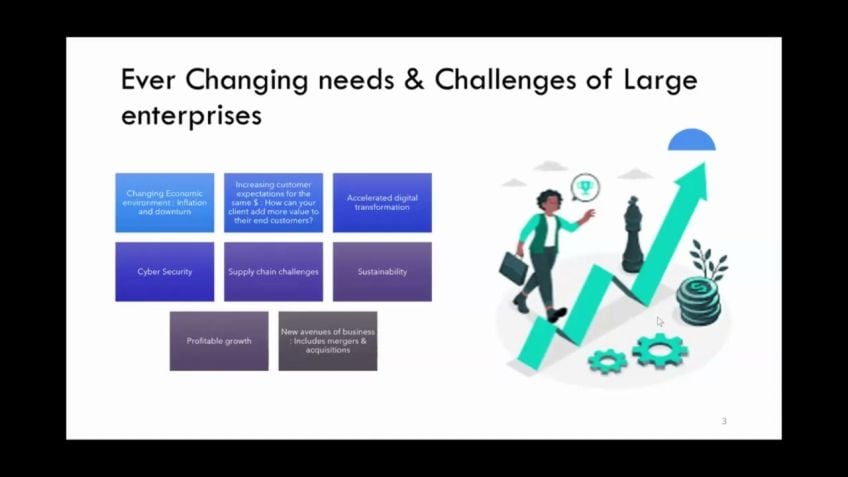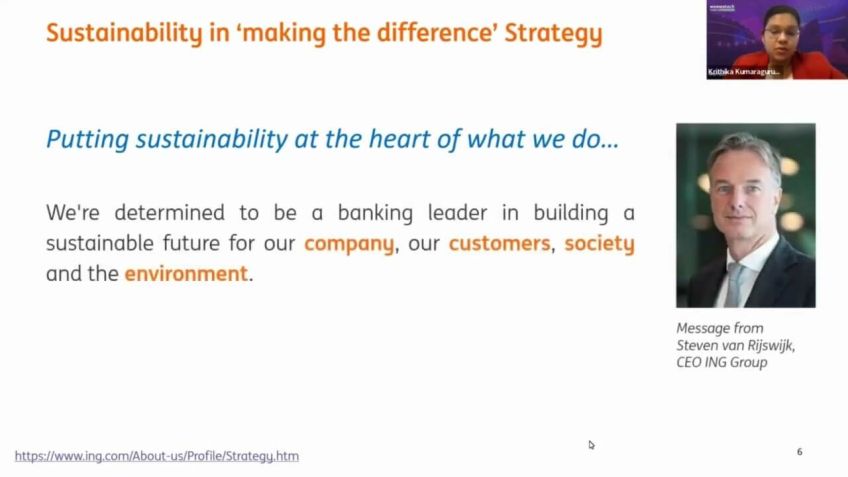Champion Culture: From Great Resignation to the Great Reinvention
Izabela Lundberg
Founder & CEOThe Importance of a Champion Culture
Have you ever stopped and questioned why a champion culture is fundamentally crucial? Let me share an insightful story of my first-time experience watching the Olympic Games. The champions’ ability to tackle anything and everything they were tasked with, amazed me and instilled in me a deep-rooted admiration for them. A champion culture is pivotal to fostering innovation, reinvention, and solving complex issues in our fast-paced, changing world.
Understanding Champion Culture
As I delved deeper into understanding what it means to be a champion, I discovered that a champion isn't only defined in the realm of sports. Over the years, I broadened my perception of a champion and began recognizing business champions who constantly drove substantial changes in their fields. In our current times, being a champion is more than just competing; it's about fostering a consistent, long-term strategy. It is their distinct DNA that empowers them to capture their team's spirit, leading their organizations and delivering unforgettable impacts to their customers.
Translating Champion Culture in Corporate World
In our corporate environment, successful organizations started as startups, but with time they have grown enormously, yet retains their startup spirit. They understand that the most fundamental aspect of an organization is its culture. Therefore, they strive to create a culture that resonates with everyone involved, driving progress and instilling a champion mindset in their workforce.
Champions Drive Transformation
The champions continuously strive to address these systemic issues, and they exhibit an excellent work ethic. They reflect credible leadership and undying passion, driving the culture forward. Moreover, they represent clear and compelling visionaries, which is fundamental in achieving a unified goal. It is the champions who empower organizations to overcome adversity and achieve phenomenal success.
Champion Culture and its Impact
When the organizational culture aligns with the champion mindset, they create a tapestry of individual contributions that bursts with vibrancy, diversity, and ideas. When we zoom into this tapestry, we see the champions who have really made an impact, those who utilized their expertise and talents to shake up the industry. Understanding their unique contributions and paths to success are essential for learning from their accomplishments and applying those lessons to enhance champion culture.
Champion Culture: More than Winning
Nurturing a champion culture goes beyond just wanting to win a game, a tournament, or a season. It's focused on the long-haul achievements. This level of championship requires a specific type of leader. This leader captures the spirit of not only their internal teams but also extends their influence to their organizations, their customers, and leaves lasting footprints in their field.
Keys to Developing a Champion Culture
- Building the Business Around Customer Value: A long-term strategy should include understanding the needs of the customers and delivering value.
- Guarding the Brand Image: The brand image must reflect the company values, if not it impacts the customer loyalty and the overall value of the brand.
- C-level Executives' Involvement in Top-line Growth: The visibility and involvement of executive-level individuals in activities that promote growth are extremely important.
- Environmental, Social, and Governance (ESG) impact: Focusing on ESG aspects introduces sustainability and strong ethics which are factors that contribute to the building of a champion culture.
In conclusion, a champion culture is imperative as it sets the pathway to accelerating people, performance, and profits. Women today are at the helm of developing this champion culture. Keep driving your passion and bringing forward the champion within you, making a significant impact and fostering a culture of champions!
Video Transcription
I'm sure so many of you are asking why is champion culture is so important? Let me share a quick story when I started watching first time Olympic Games around the world.When world all came to my little country at a time of former Yugoslavia in 1984 I felt for first time that champions are the most amazing beings capable to do anything. And for more my life, I've been introduced to male champions, champions in sports and over the years I've been introduced later on champions in business and then made a huge, huge difference. And and let me tell you why when we look at what it really means to be the champion, specifically champion of culture and with current times where we really need more than ever, innovation and reinvention, right? What happened is I had a chance to look at how world comes together and how we can solve complex issues. But yet how we also can run into a lot of trouble if we're not focusing on specific things related to understanding what is happening? And are we solving the problems from different perspective? We all know the problems cannot be created or cannot be solved the way they're created. We have to find a better in your way.
And what really astonished me is to see how over just in my few decades of my involvement in researching and paying and closer attention around champions, the ones that are showing up before, to learn and discover the deep meaning of business and life, not just the sports ones that were being introduced in the past, the bigger question was when you were that kid, what champions did you connect to?
Who did it resonate to you? And what really shocked me is how little a female representation was there? Fast forward. Decades later, we're seeing similar things in a business arena. We have to really find a way not only how to improve things in life, how to triumph, but also how to fight, how to bring things together because it's also about participation and allowing this diverse pool of amazing talent. So nothing as great and essential as the opportunity to be in front of your beautiful, powerful woman that wanted to champion themselves on the path to greatness and also install that amazing champion culture. So you see what comes very often in conversation is Isabella, why do you think this is so important because it's not anymore enough just for us to compete, right? And we're still fighting for opportunity to do so. But what is so important is to really look at a long term strategy, we're not here just for the game. We're not here just to win the tournament or a season. We're here to win the championships in a long haul, right? And what that takes is really specific types of, of DNA, of leader that really can capture not only internally their teams, but then also to organizations, to customers and ultimately make amazing footprints.
So when we, when we ask recently, what are you feeling when you think about Amazon or Facebook? And what do you think about their culture and how they're champion or not their people? You see a lot of organizations started as a start ups with very small granular opportunity to make impact and difference. But before you know, it, some of them explode to the level that they're still operating as a small companies or as a start ups, even though there have billion dollars portfolio. How is this really translating in today's environment and what really needs? And when we will look at all of this from very different perspective, what we forget often is the culture is born as of organization. And it's absolutely the most fundamental element that we need to really look at how these traditions results, languages, stories and everything that we communicate that how we show up, it's resonated with others because that's the tapestry of individual contribution to that culture in addition to that Amazing Champion mindset.
And then when we add that, it's like who we really believe or trust in this moment. And let me back up for a second here because when we look at here and I mentioned earlier, some major major large companies, Fortune 510, we also look at who is really bringing that amazing work ethics, who is also being able to be world leader and great partner, who is highly committed really and the biggest assets in every organization you guys know already, it is the talent, right?
And if we're not looking through that lens, why we're having so many challenges right now. But also when we look at from different lengths of the same coin, from different side, tremendous opportunities. We're seeing a lot of systematic issues. I don't have to remind you all of that.
You already know how much of all of this is happening in advance. But we're also seeing trends that I can't say I'm really happy to see because we, if we continue to neglect what's the most important, we're not gonna be able to bridge the gap that we're seeing here. That's where so many of you phenomenal women and tech industry are coming to place, disrupting every segment of organization. And that is really where I love to see the opportunities where we actually champion, not only for one another, but also champion to support this huge much necessary needed transformation. Why I'm also pointing to something that might be obvious yet fundamental and sadly, very often overlooked.
What are the trades of champions and what are trades of amazing champion culture. And honestly, if I frankly ask you which of those companies either you already work with or actually have as your clients, which of those traits you would say Isabella, they have all of them, what we have right now. Its need for more than ever for credible leadership, those amazing creators and also champions that are going to champion what they're trying to f uh what they were trying to implement and what they're focusing on to preserve their culture. Also. Who are those clear and compelling visionaries who have that amazing undying passion that is bringing forth for everyone and who is driving their culture forward. And then what really often gets fragmented. It's a core values. What values do we exude and not only put on our website and we probably share with our missions and vision statement, but truly, if we, we ask anybody in organization, would they say, hey, we know what values are because we experience it on daily basis and then also something to really get a little bit sideways, the standard of behavior the last few years of being challenged for so many and those challenges really opened the flat gates of so many different behaviors, behaviors that also really showed us whatever we were sleeping under the rug over the years and neglected to address COVID remote work.
And all of the huge adaptation just brought so many poor of issues and forefront and really show who is committed, who is unified, who is a team member and why and how some organizations propelled and exceeded and the others struggle and continue to struggle. So what happens is often we don't see the aligned leadership with the mission and vision most importantly to their people. So when we do see that, would you say that all of these straits that I just mentioned would be present in your own environment? Anyone pick a question if they're not present, why, why they're not there? What's missing? See when I was asked and interviewed about quiet, quitting, quiet firing and quiet hiring. We actually seen three trends happening simultaneously, but we don't necessarily hear about all of them.
We heard so much what we do from great resignation and what we gonna do about it. But that resignation, it's a deeper symptomatic issue of all of those traits that are either not addressed in organizational culture with their champions because either they're champion for wrong things or championing for things that are not clear for rest of the team members.
So when quite quitting started, what I found to be astonishing is that so many talent not only felt burned out and wanted to look at for alternatives and different opportunities, but they're also recognizing that they were demotivated because they lost trust in their leadership.
They were not aligned with wish and vision or their behaviors, not their core values. And frankly, we start seeing less and less cable leaders. So many amazing talent came to rescue. And as a result, we've seen so much of innovation and transformation happening, which absolutely should be pride ourselves on. But what we also see is quiet firing when we don't necessarily want fire someone. But we are through horribly poor behaviors and standards, alienating these individuals so that they are forced to quit eventually, very passive way of making things for organization to function and very difficult to observe and very frankly, difficult to be part of on daily basis.
And then we had a simultaneously another issue happening at the same time quite hiring when already leadership and organizations knew who they want to bring on board. But they didn't want to make a public announcement about jobs positions or do regular channels to make that happen.
Because very often when you have simultaneous thing uh about quiet firing, you already have in mind who you wanna bring. And when you bring that individual, that is the trend that also start happening with all of those situations around great resignation or a K quiet quitting, then you must be wondering what are alternatives? How can we shift this and move it forward where the opportunities are going back to that little story of me as a little girl watching First Olympic Games in 1984 in my home country in Sarajevo, former Yugoslavia. I've taught that we have so much opportunity as we really look at to build a world if we come all together, because everybody has a different skills, everybody has a different uh trajectory, the growth, the talent, the opportunity. And also if we joined the forces, I always thought how much more we can achieve if we have the best of the best, right? So that's where it comes to opportunities where we bring amazing all-star champions i in a business and life with that amazing mindset to really look at how they can accelerate people performance and profits. How is this decision making affecting today? How organizations are operating?
You see, it's not just enough to bring a champion here in organization because individual contributor, if they're not in good healthy team environment, they will never thrive. Also, it's just not enough to have a team that is on champion level performing, meaning that they're super um capable and able as well have all those traits to drive business forward in collaborative manner has to be also an organizational level. And what I found through my years of experience that so much we focus how we achieve culture of excellence or organizational excellence, customer focused. But we forget we cannot have customer excellence without having cultural excellence and also amazing champion mindset and champions to deliver that because everything is interconnected and everything bleeds if we don't have all of those things internally, very well integrated.
But where I was going with this particular segment of accelerating people performance and profit with times that we're currently in, everybody is pushing for that. They're like, Isabella, what can we do to increase our performance? How we can make a target, how can we do these goals?
And I'm like, let's take a pause. Let's take a look at a little bit about what are you currently doing or more importantly, how are you doing? What is missing in that equation? Where is the decision maker coming in there? And how does decision making roadmap actually will help you to accelerate and get to bottom line of all people, performance and profits. What is really happening? What is essential is to start really looking how we build the business around all time customer value and I measured couple major largest companies. Fortune 10. How do we bring the value to them, for example, or find the ways to interact has to be that reinvention mindset, wouldn't you agree? Because if we are doing again business, the same old way, things gonna just delay the progress, create more friction. It's going to have a more resignation, more people that are going to be checked out, unmotivated. And also frankly, it's going to affect reputation, the brand and of course, the bottom line, what we also need to be looking at is what is the image and what is the value of today's brand. Because a lot of times people don't realize how much actually brands.
If we just Google today, how many companies lost the value of their branding based on how their leadership it's being portrayed in social media. And I'm not just talking about scandals and I'm not talking about politics and divide. I'm talking about also how do we show up day to day? Because also that shows and drives something that we cannot jeopardize, which is customer loyalty. We also have to understand the cause and effect, right? So if we're one on one thing, what do we need to do to obtain that? And what do we need to, to maintain that? And that is where a lot of, again, organization have a tremendous opportunity. But that is the another topic, another point that I want to bring um which again, after business, it's being understood around the customer value on the long term and also around the brand and image that's being portrayed individually, the leadership and overall company, we have the third opportunity which I see less and less that is being capitalized on which is how we have ac level executives involvement in top line growth and their visibility leaders like yourself that are showing up being on social media, having strong message, able to be visible, not only internally with your talented team, but also externally, I am making a tremendous mark.
At the same time, the ones that are adding the fourth component in equation which is being esg driven, focusing on environment, social and governance frameworks that are bringing overall sustainability and, and various aspects including strong ethics are the ones that are not worried about of attracting great champions to their culture and beating their people, right?
They're not worried about performance because performers are there to be, bring the best game that they can play and they're not worried about profits because clients want always backs of where the value is. So where we are sitting right now, where we have the biggest opportunities to think again, why and how we can elevate our game, our individual game as a champions. How can we add that to overall beautiful culture piece driven by the champions and then bring all the home by driving and accelerating the people performance and profits. The road map that I just gave you again by building businesses around specific all time customer value. Bye.
Looking at brand image and being visible by having c level executives visible themselves and being involved in top growth and focusing on our environment and social and governance impacts are just few that can really help to move the needle focus and move the needle and keep us focused regardless of current environment.
So I just want to say thank you so much for opportunity for all of you do away in audience. And I just also wanted to highlight that women today specifically in history more than ever are paying huge attention. And as a result being actually one of the key drivers of this reinvention and I just want to kudo every single one of you in audience to keep going to keep driving your passion and bringing that champion within you and impacting everybody else around you. Thank you.






